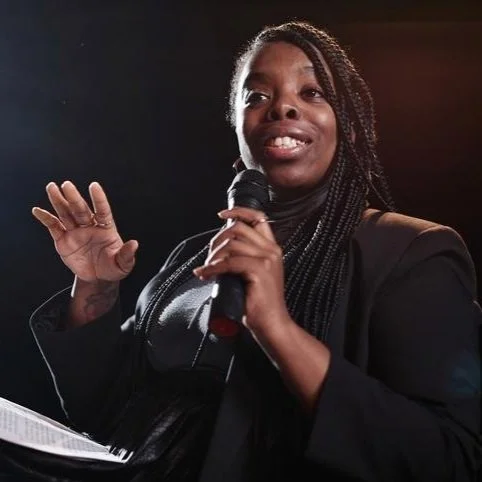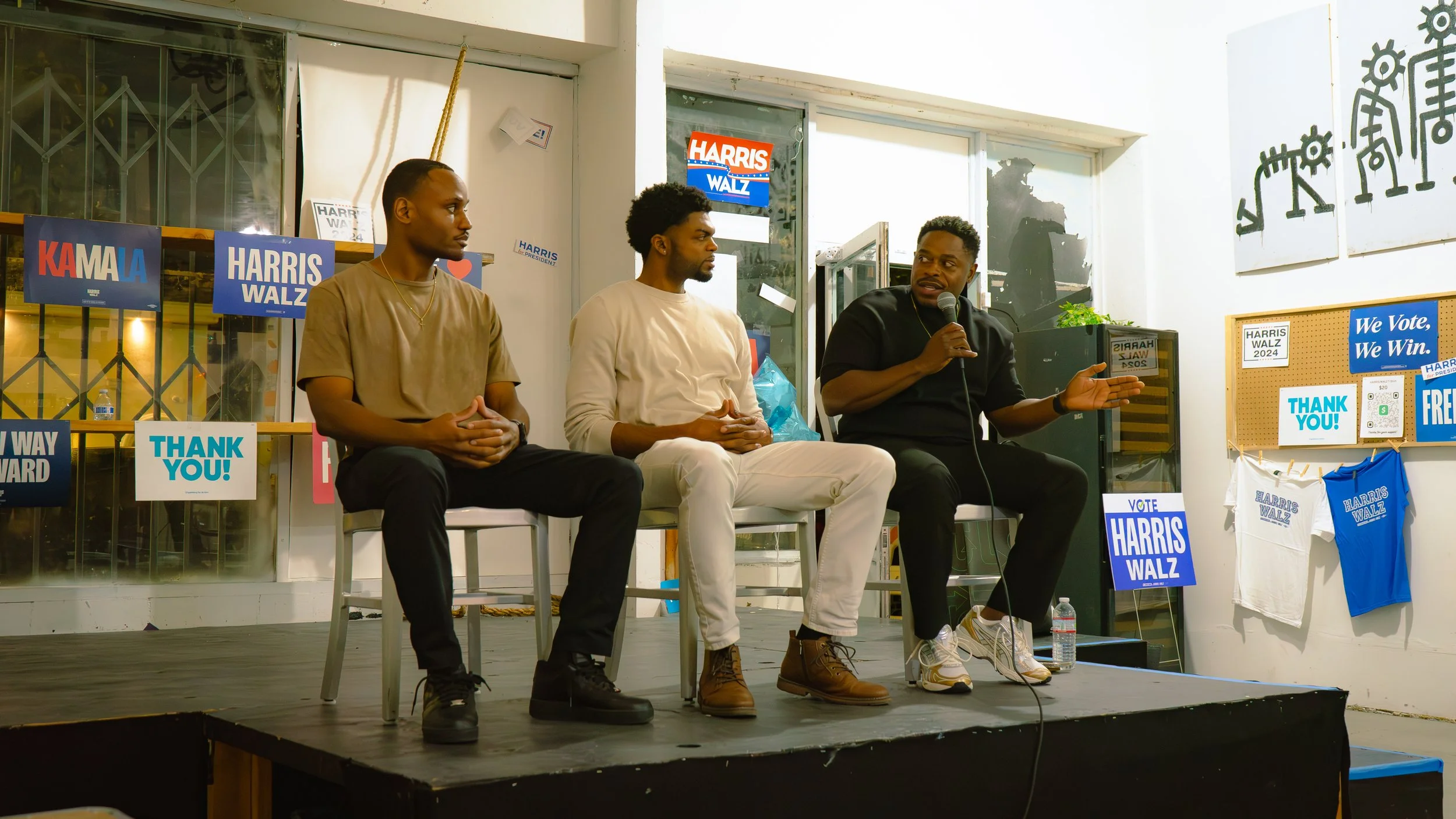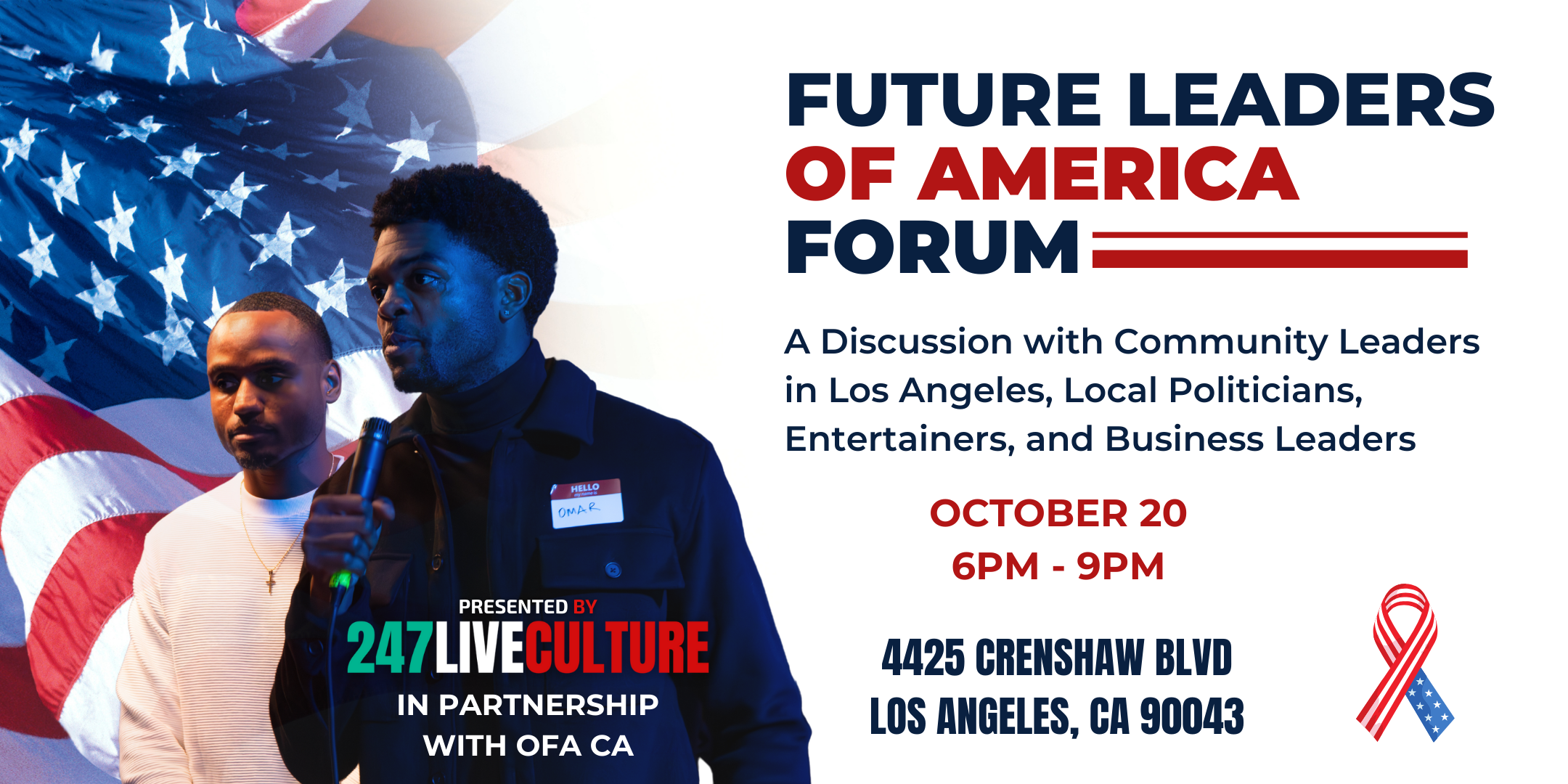Sex Trafficking Is A Real Crisis: Why Are Black Women Under Attack?
Sex trafficking is a real problem and African American women make up the highest percentage of victims. Why are Black Women under attack? We discuss it here!
By: Omar Cook
We’ve been hearing this issue of human sex trafficking and also an influx of Black girls coming up missing. The 2 issues go hand in hand. Sex trafficking is a real problem and African American women make up the highest percentage of victims.
According to the FBI, Black women make up 40 percent of all sex trafficking victims in the US while according to the US Census Bureau, African Americans only make up 13.1 percent of the population. Even WORSE, Black girls make up 55 % of all prostitution-related arrests in the U.S. The numbers are sick. There are a few reasons why the arrests of Black girls are so high.
Sex trafficking is forced slavery, which involves women being forcibly kidnapped and sold as sex slaves. Sex trafficking also involves the coercion and exploitation of women who come from poor or inadequate support systems. Underaged girls in low income environments are being taken advantage of and used for prostitution. Instead of receiving actual help, the women are arrested and judged as prostitutes, which is the reasoning for the high arrest records of Black girls. Underage Black girls being sold for sex are not criminals, they are victims. Why is it that the criminal justice system is faster to label these women as criminals rather than giving them the help that they need?
One high profile example of this is the case of Cyntoia Brown, who at 16 years old, was sentenced to life in prison for killing a 43 year old man who she feared was about to take her life, during a sexual transaction. Brown was eventually released after 15 years last year after being granted clemency, but how many other Black girls are in a similar situation that is not gaining national attention?
Cyntoia Brown
In 2018, the Black and Missing Foundation reported that roughly 64,000 Black women and girls went missing. 64,000.
“African American youth are at increased risk for domestic minor sex trafficking, with being female, living in an urban area, and experiencing abuse prior to trafficking all being factors that are associated with risk for sex trafficking. Of the over 300,000 minors in the U.S. who are victims of domestic sex trafficking, it is estimated that 43 percent are African American girls,” according to research by Thema Bryant-Davis, PhD., of Pepperdine University.
In 2017, there were mass reports of Black girls going missing in Washington D.C. “A few years ago, around 80 girls in Washington, D.C., went missing in a month, and it was crazy to me that nobody was talking about this. I started doing research and couldn’t find anything about it,” said Imani Blair, a rapper from Virginia. “Nobody was talking about it. No news was talking about it; and that made me feel some kind of way. And the more research I’ve done it, the more I’ve learned that this is a really big problem in our community.”
Sex trafficking is a major issue around the world, and it has no color boundaries, but the facts are real; Black women have been a major target. Sex trafficking is directly related to billion dollar money making industries which include, pornagraphy, prostitution, and the simple fact that there are men out there that are willing to purchase women as sex slaves and be held against their will. The porn industry continues to grow as the internet evolves and what’s crazy is that you have no way of knowing whether the video is consensual or not from the participant. As the demand for sex related entertainment increases, the demand for participants will also increase, and what’s a better to save money than by gathering “free” participants? Think about that.
It is imperative that we begin to closely watch out for women in our community and in our home. Women should be aware of their surroundings at all times, not walking around paranoid, but aware. Always try your best to not walk alone at night in poorly lit areas and keep your phones charged. Be careful taking Ubers or Lyfts and let someone know every time you get inside of transportation that is not yours.
As a Black male with 4 Black sisters coming up under me, hearing stories like this makes me more cautious of their safety. We should not have to live our daily lives worrying about issues like this, but unfortunately, this has become a true reality. Be safe.
National Human Trafficking Hotline
1 (888) 373-7888
SMS: 233733 (Text "HELP" or "INFO")
YOU MAY ALSO BE INTERESTED IN:
SHARE TO SOCIAL MEDIA
Cyntoia Brown Granted Clemency After 15 Years Is Long Overdue
After 15 long years, Cyntoia Brown was granted clemency after being sentenced to life in prison at the age of 16.
By: Omar Cook
Cyntoia Brown was given a life sentence for killing Johnny Mitchell Allen, 43, who bought her for sex at the age of 16 years old. After serving 15 long years in prison, Brown who is now 30 has been granted clemency by Tennessee’s Governor Bill Haslam and will be released to parole supervision on August 7.
"Cyntoia Brown committed, by her own admission, a horrific crime at the age of 16. Yet, imposing a life sentence on a juvenile that would require her to serve at least 51 years before even being eligible for parole consideration is too harsh, especially in light of the extraordinary steps Ms. Brown has taken to rebuild her life. Transformation should be accompanied by hope" Haslam said.
Brown’s case has been a high profile case for over a decade and is an example of how people can get caught up in unfortunate situations. In this case, the prosecutors said that Brown shot Allen in the head as he was sleeping, stole his money, guns, and truck and fled the scene. Brown claimed that she had a fear for her life and took the money in fear of coming back empty handed to her pimp named “Cut Throat.” Brown was a victim of sex trafficking at an early age and was tried as for her crime as an adult.
Brown was the feature of a 2011 documentary called "Me Facing Life: Cyntoia's Story," where she describes being forced into a life of prostitution at a young age, sex-trafficked and raped repeatedly. This nightmare reality that Cyntoia Brown was subjected to only got worse when she was handed a life sentence. This case shows the lack of mercy, compassion and understanding that the justice system has for juveniles especially given the circumstances surrounding Brown and how the case happened. Being sex trafficked is one thing, and being sentenced to life as a juvenile for killing the person involved in the act of your sex trafficking is another nightmare in itself. Cyntoia Brown was dealt a bad hand and it’s about time that her life be given a second chance.
This case shines a light on the injustice of sentencing a juvenile to a life sentence. There are many things wrong with the current justice system and at some point there needs to be some reform. It’s not hard to see that this punishment was too harsh, but how many other juveniles have been subjected to ridiculously long sentences without being given a second chance? If Brown hadn’t been granted clemency, she would have had to wait until she was 51 to go up for parole. Many activists and celebrities have been fighting for justice for Cyntoia and through all of the hard work, her day of freedom will come.














